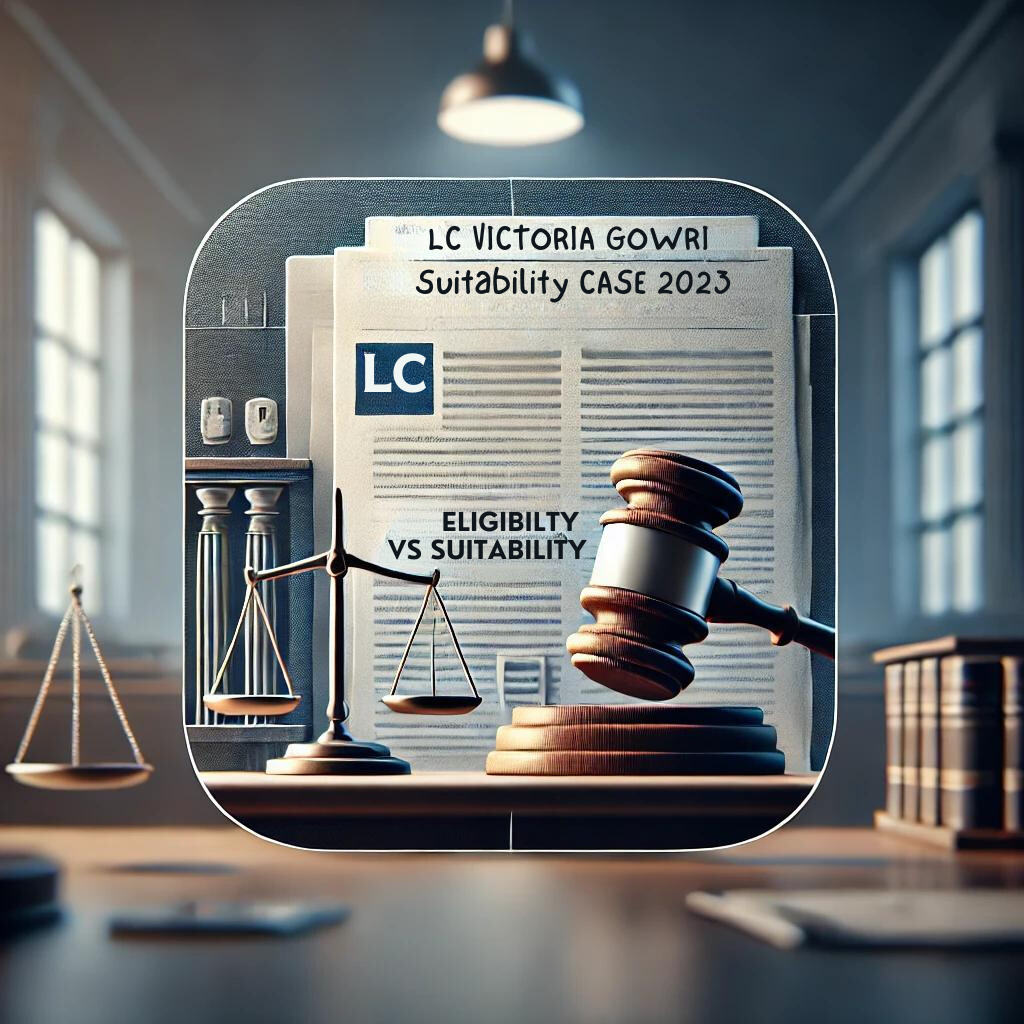In a pivotal judgment that stirred the legal fraternity, the Supreme Court delved into the nuanced difference between ‘eligibility’ and suitability for judicial appointments, specifically focusing on the case concerning the elevation of Advocate LC Victoria Gowri to the position of Additional Judge in the High Court. This case originated from a writ petition filed by three advocates from the Madras High Court, challenging the collegium’s recommendation for Gowri’s elevation on grounds that questioned her impartiality and integrity, citing her alleged hate speeches against minority communities. The core issue revolved around whether the appointment of judges falls within the purview of judicial review under Article 217 of the Indian Constitution, sparking a broader debate on the criteria and processes governing judicial appointments.

Facts
Filing of Writ Application
A writ application was lodged by three advocates from the Madras High Court, challenging the collegium system’s endorsement of Advocate LC Victoria Gowri for elevation to the position of an Additional Judge. This move underscores the legal fraternity’s concern over the integrity of judicial appointments and emphasizes the crucial role of the collegium’s scrutiny in upholding the judiciary’s independence.
Allegations Against the Nominee
The allegations leveled against LC Victoria Gowri pertained to her purportedly divisive views and statements, raising apprehensions about her suitability for the judiciary. Critics argue that her past remarks, perceived as hate speeches, could undermine the impartiality and secular ethos expected of a judge, thereby posing a significant threat to the judiciary’s independence.
Supreme Court’s Immediate Hearing
The Supreme Court, under the stewardship of Dr. D.Y. Chandrachud, accorded priority to this case by scheduling an immediate hearing. This prompt response highlights the apex court’s commitment to addressing concerns over judicial appointments with the utmost seriousness and urgency, ensuring that the sanctity of the judiciary is preserved.
Issue Involved
At the heart of this controversy is the question of whether the appointment of High Court judges is subject to judicial review under Article 217 of the Constitution of India. This central issue probes the limits of judicial oversight over the collegium’s recommendations, setting a precedent for future appointments.

Observations
Suitability vs. Eligibility
The Court made a critical distinction between a nominee’s suitability and eligibility, asserting that while eligibility falls within the purview of judicial review, questions of suitability do not. This delineation clarifies the scope of judicial scrutiny in appointments, balancing respect for the collegium’s discretion with the need for oversight.
Ineligibility Criteria
The Court’s stance on hate speeches in relation to eligibility for judicial positions is pivotal. By not deeming such speeches as grounds for ineligibility, the Court navigates the delicate balance between freedom of expression and the requisite moral character for judicial office, setting a nuanced precedent for future considerations.
Collegium’s Awareness
The assumption that the collegium was unaware of nominees’ backgrounds was addressed, with the Court positing that the collegium likely considered all relevant factors. This observation underscores the collegium’s role in vetting candidates thoroughly, ensuring that only those with impeccable credentials are recommended for judicial positions.
Appointment and Confirmation
Clarifying the nature of the appointment, the Court emphasized that the status of an Additional Judge is provisional, subject to confirmation. This distinction is crucial in understanding the procedural nuances of judicial appointments and the checks in place to evaluate a nominee’s performance.
Writs of Certiorari and Mandamus
The Court’s reasoning for not entertaining writs of certiorari and mandamus in this context, based on prior judgments, reinforces the judiciary’s autonomy in self-governance. This conclusion upholds the principle that certain decisions, especially those related to judicial appointments, are beyond the scope of direct judicial review.
Rejection of Writ Petition
Ultimately, the Court decided to reject the writ petition, allowing the administration of the oath to LC Victoria Gowri as an Additional Judge. This decision not only resolves the immediate controversy but also sets a significant precedent regarding the limits of judicial review and the criteria for judicial appointments, ensuring the judiciary remains a bastion of independence and integrity.
Conclusion
In the intricate weave of judiciary appointments and the principles guiding them, the case of Advocate LC Victoria Gowry underscores a pivotal demarcation between eligibility and suitability, serving as a profound lesson for judiciary aspirants. As the Supreme Court delineated its stance, emphasizing the limited purview of judicial review in matters of suitability, it reaffirmed the autonomy and discretion vested in the collegium system. For those on the path to becoming part of this esteemed institution, this case serves as a stark reminder of the nuanced challenges that lie ahead. It invites aspirants to critically evaluate the underpinnings of judicial independence, the ethical obligations of judges, and the intricate balance between personal liberties and professional responsibilities.
As you stand on the precipice of entering the judicial realm, let this case be a beacon, guiding your understanding of the judiciary’s complexities and the paramount importance of maintaining its sanctity. Let the lessons from this case inspire a deeper commitment to upholding the ideals of the judiciary, enriching your pursuit of becoming a guardian of the law.

